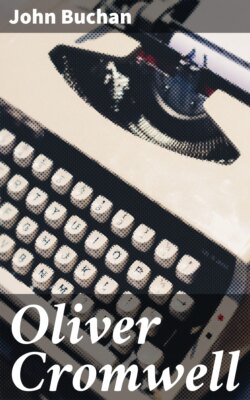Читать книгу Oliver Cromwell - John Buchan - Страница 17
На сайте Литреса книга снята с продажи.
III
ОглавлениеTable of Contents
With Sir Oliver’s brother, the second son of the Golden Knight, we enter a different world. Robert Cromwell chose the fallentis semita vitæ, as if in revolt from the splendour of Hinchingbrooke; he did not go to Oxford, like his brothers Henry and Philip, but on the lands which fell to him at Huntingdon devoted himself to farming and trade. He was comfortably off, for between his inheritance and his marriage portion he had the equivalent of £2000 a year to-day, and he kept well within his income’s limits. He had pastures in which he grazed cattle, and fields of grain from which he got the malt that he used in his supplementary business of brewing. He sat in one of Elizabeth’s parliaments as member for the town of Huntingdon, was bailiff of the borough, and on the commission of the peace for the county. For the rest his only public activity was that matter of draining the Fens which lay near the heart of every dweller in the eastern midlands.
Tradition makes Robert Cromwell a serious, quiet man, careful in the things both of this world and the next, and a portrait of him which hangs at Hinchingbrooke bears out this character. The face is long, lean and composed, the features regular and delicate, with a hooked nose, a sensitive mouth, a high forehead, and grave eyes well set under deep brows. The refinement with which we may credit the Williams stock has ousted the coarse bluntness of the Cromwells. It is the face of a man who is no leader, whose instinct is not for action but for peace and self-examination. Such strength as it reveals is for endurance rather than for the world’s coercion.
He married a widow, Elizabeth Lyon, daughter of William Steward of Ely, and fantastic biographers have assumed that she was a Stewart and allied to the royal house of Scotland.[43] But the piquant notion is untenable; she was of the ancient Norfolk house of Styward, and a kinsman had been the last prior of Ely and had had high words with her husband’s grandfather Sir Richard, when he was out against the religious houses.[44] Sir Richard had thought him “froward,” but the prior proved accessible to reason, became the first protestant dean of Ely, and did well for himself out of his change of creed. Her brother, Thomas, was well-to-do; he farmed the cathedral tithes, and had been knighted by James. The miniature of her at Windsor is of some interest, for it shows the influence which shaped the features of her son. The face has many points of resemblance to his—the heavy lower part combined with the well-formed mouth, the long nose, the prominent troubled eyes, the forehead very full above the brows. Oliver’s was a heavy and blunt face, but it had not the porcine bluntness of Thomas Cromwell’s.
To this small country gentleman and his wife, in their modest home just off the High Street of Huntingdon, were born ten children, of whom six daughters grew to maturity and one son. This son, baptized Oliver after his uncle, entered the world at three o’clock in the morning on the 25th day of April in the year 1599. “I was by birth a gentleman” he was to tell one of his parliaments, “living neither in any considerable height nor yet in obscurity.”[45] He might have put the claim higher, for his ancestry was at least as distinguished as that of many of the new peerage, the wool-staplers and courtiers and merchant-adventurers who had risen on the ruins of the ancient nobility. Much nonsense has been written about the publicans and blacksmiths of Putney and the brewers of Huntingdon, for old England OLIVER’S ANCESTRY had no petty snobbishness about vocations. Oliver was sprung of races long rooted in the soil, varied races deducing from many quarters. He had the potent Cromwell stock with its hard instinct for success, the blood of prosperous London merchants, and the Styward inheritance of the stubborn Saxondom of the Fens. And to leaven it he had the rarer strain of the Welsh gentlefolk from Glamorgan, which could flower into the fantastic gentility of the Golden Knight and the quixotic Sir Oliver. His ancestry was a medley, like that of the English people, and most of the creative forces in England had gone to the making of him.
